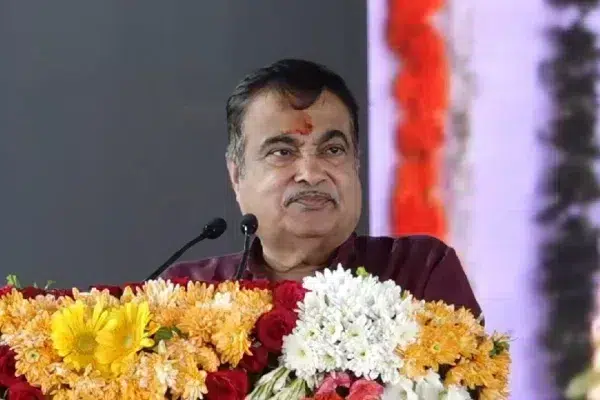Nagpur: Union Minister Nitin Gadkari delivered a thought-provoking speech at the “Amazing Vidarbha Parishad” organized by the Vidarbha Economic Development Council in Nagpur, cautioning against excessive reliance on government support. In his address, he referred to the government as a “Vishkanya,” a term derived from ancient Indian folklore meaning a poisonous girl, implying that over-dependence on government assistance can be harmful.
Gadkari advised industrialists and investors not to place too much trust in the government, regardless of the ruling party. He highlighted the unpredictable nature of subsidies and government aid, stressing the importance of self-reliance. He remarked that while subsidies can be beneficial, there is no certainty regarding when or if they will be granted. He even quipped that those waiting for subsidies might have to “pray to God” due to the delays and uncertainties involved.
Recalling a personal experience, Gadkari mentioned how his son was hopeful about receiving a subsidy of Rs 450 crore. However, Gadkari warned him against counting on it, citing the unpredictable nature of government priorities. He referenced schemes like the “Ladki Bahin Yojana,” where government funds may be redirected, causing further delays in subsidy distribution.
The Minister also expressed his disappointment over the lack of major industrial players in Vidarbha. He lamented that no industrialists capable of investing Rs 500 crore or Rs 1000 crore were available, hindering the region’s economic growth. He cited the example of Butibori, where land intended for industrial use is often bought and sold for profit, rather than being utilized to establish new industries. Gadkari emphasized the need for significant investments to kick-start development in the region, pointing to stalled projects and inactive units.
In his speech, Gadkari mentioned Sajjan Jindal, who recently acquired the MG Hector Company and is focusing on electric vehicles. He appealed to Jindal to invest in Nagpur, particularly in the production of electric buses and trucks. Gadkari believes that such large-scale industries could significantly contribute to the economic development of Vidarbha.
Gadkari’s remarks carried a strong message for industrialists and investors, emphasizing the dangers of over-reliance on government support. He advocated for independent business planning, free from the uncertainties of subsidies. Despite the challenges faced by the Vidarbha region, Gadkari expressed optimism that with the right approach, the region could achieve significant economic growth.















